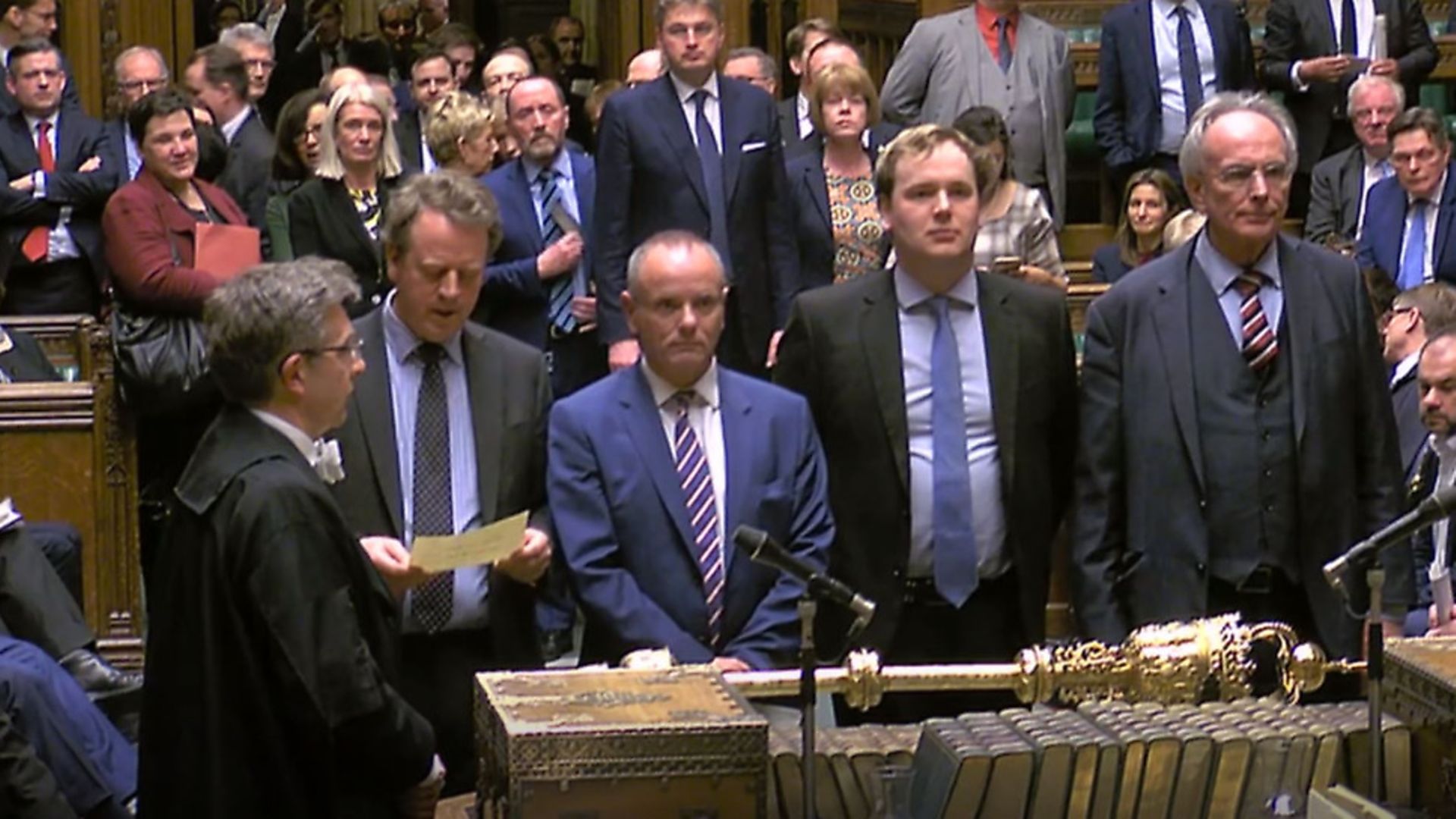
MPs have voted to delay Brexit beyond the scheduled date of March 29 amid dramatic scenes in the House of Commons.
The motion in Theresa May’s name, authorising the prime minister to request an extension to the two-year Article 50 negotiation process, was passed by 412 votes to 202 – a majority of 210.
Only a refusal by the leaders of the 27 remaining EU states to grant the UK an extension at a Brussels summit could now preserve the totemic date of March 29 as Brexit Day.
May has made clear that she will press her deal to a third ‘meaningful vote’ in the Commons by March 20 in the hope of securing the support of MPs who rejected it by 230 votes in January and 149 earlier this week.
If she succeeds, she will go to Brussels next Thursday to request a short delay to a date no later than June 30, to give herself time to pass legislative changes necessarily for a smooth and orderly Brexit.
But if her deal is rejected for a third time, she believes any extension would have to be far longer and would involve the UK taking part in European Parliament elections in May.
Cabinet Office minister David Lidington told MPs that in this case, the government would stage two weeks of debate following the March 21-22 summit for the Commons to try to establish a majority around a different plan.
Earlier MPs rejected an attempt by the Independent Group to secure a People’s Vote by 334 votes to 85.
The speaker sparked fury among Brexiteers by selecting Sarah Wollaston’s referendum proposal for debate, while blocking another amendment which sought to rule out a second public vote.
And by the far narrower margin of 314-312, they voted down a cross-party bid for parliament to seize control of the Brexit process.
The cross-party amendment, tabled by MPs including Labour’s Hilary Benn and Yvette Cooper and Tory Sir Oliver Letwin, would have forced a set of ‘indicative votes’ to determine the preferred Brexit outcome of the House of Commons.
A Labour amendment demanding an extension to Article 50 withdrawal negotiations to provide time to ‘find a majority for a different approach’ was also defeated.
Labour whipped its MPs to abstain on the referendum vote, but 24 voted in favour – not including Brighton’s Lloyd Russell-Moyle, who went through both lobbies to cancel his own vote out.
It revealed that leader Jeremy Corbyn and senior aides have met with backbenchers Peter Kyle and Phil Wilson, who are promoting a plan to accept Mrs May’s deal on the condition that it is subject to a second referendum.
Best for Britain supporter Rachael Maskell MP said: ‘We have achieved what we set out to do today – extend Article 50 to make good on parliament’s decision to rule out no-deal.
‘We must now pull together to defeat the government’s deal next week, a deal devoid of credibility after two drubbings in parliament. The prime minister must now go back to the EU and negotiate the extension demanded by MPs from across the House.
‘Now that we have averted disaster in the short term, colleagues across the House must work together in the coming days secure the winning majority needed to deliver the only credible solution to this mess – giving the people the final say.’
Stephen Doughty MP, leading supporter of a People’s Vote, said: ‘It is obvious and essential that the UK needs to extend the Brexit deadline. That was rightly the focus of today’s debate and votes and the government had been forced into extension after a succession of defeats. The prime minister’s former self-imposed deadline of 29 March does not work, as even she now admits.
‘In the days and weeks ahead, MPs will have to make more decisions on this crucial issue. Any extension of the Article 50 deadline must be used to deliver the clarity about Brexit that has been missing from the last two-and-a-half years of vexed debate. We need to decide whether we are willing to pay the huge price of going it alone, of which the £50 billion divorce bill will only be the start.
‘Any Brexit deal looks less attractive when it is a concrete rather than abstract proposal. Their supporters have to answer whether leaving us as rule-takers and supplicants to the European Union honours the promises they made in 2016.
‘And we must all decide what we want our country to become. When the real costs and new facts of Brexit are properly scrutinised, MPs will also have the chance to consider whether it’s only fair to give the public a real say and a new vote – or if they want to force Brexit on the British people any way. There is no majority in Parliament for anything on Brexit – and that is the problem which only a People’s Vote can solve.
‘A People’s Vote is the only way forward.’
Warning: Illegal string offset 'link_id' in /mnt/storage/stage/www/wp-includes/bookmark.php on line 357
Notice: Trying to get property 'link_id' of non-object in /mnt/storage/stage/www/wp-includes/bookmark.php on line 37






